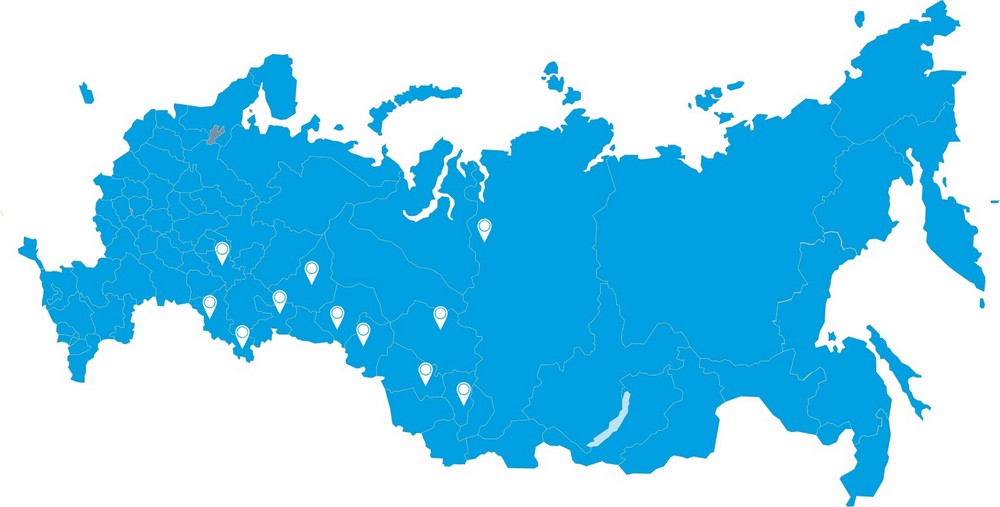4 most common dealer contract mistakes
Decided major supplier? A commendable undertaking, which, however, means that you, as a director, will have to go through the responsible procedure of legal registration of the dealership. The first thing a potential intermediary needs to know about a dealer agreement is that you will most likely be forced to accept most of the supplier's terms.
However, do not despair ahead of time: you can get more favorable conditions. Among them, the most popular are price bonuses and certain discounts, guaranteed sales volume, etc. Today we will tell you about with an indication of the facultative conditions that are beneficial for themselves and how to avoid future problems when designing an agreement.
Start of interaction with the vendor
Mistake No. 1: the dealer agreement was signed “without looking”, without discussing and editing specific conditions
If you have set your sights on dealership from a large supplier operating throughout the country or even abroad, then expect the most stringent terms of the contract. Most likely, you will be required to have a developed material base, and capital buildings with expensive and high-quality design of trade and warehouse infrastructure, and, of course, a staff of experienced employees. It is also important to remember that most large suppliers have a minimum sales volume or a minimum purchase volume - and even if you run a large company with extensive experience in the market and full compliance with all conditions, entering into a tough dealer agreement will be fraught with great risks.
Consequences of an error. The fulfillment of all the conditions proposed in the agreement will entail enormous costs: these may be the costs of designing and equipping retail facilities, the need for staff training, and even a complete ban on purchases from other companies. You will not comply with all the conditions set in the contract - you can not only be deprived of the status of a dealer, but even completely prohibit you from selling the goods of this supplier in your segment. An attempt to protect your rights through the courts is unlikely to bear fruit: firstly, a large supplier will always have reliable protection in the form of a staff of experienced lawyers, the availability of about more financial and time resources, and secondly, in the domestic legislation de facto there are no definitions of such categories as "dealer" and "dealer agreement". Finally, arbitration practice shows that the vast majority of cases related to the “oversight” of the terms of the agreement are not resolved in favor of the inattentive party to the agreement.
How to proceed? From a legal point of view, a dealer agreement is nothing more than a regular supply agreement. It may optionally include some additional options, for example:
- The dealer company receives the right to use the vendor's trademark;
- The agreement may strictly define the geography of sales, going beyond which will result in sanctions;
- The selling and purchasing price is rigidly set by the supplier company;
- The vendor has the right to prohibit the purchase and sale of goods of competing firms;
- The dealer may be required to independently carry out marketing activities and provide after-sales service.
Based on the fact that the above examples of clauses of the agreement are optional, they, in fact, become the subject of negotiations. This saves the dealer company a chance to achieve a certain mitigation of the terms of the agreement in any of the aspects: the need for material, labor, financial resources, concessions in the volume of purchases and sales, etc. When drafting the contract, the dealer should show that the supplier's requirements are overstated, and certain help him direct more funds, for example, to promotion and sales promotion or to expand retail space, improve service, etc.
One of the classic objects of bargaining is assigning to the supplier the obligation to train the dealer's personnel, free of charge. According to the expert assessment of site analysts, this item is included in the dealer agreement in almost 75% of cases - provided that the area implies the need for training or advanced training of the dealer's employees.
The second "bonus" in polarity for the dealer is service maintenance by the forces and at the expense of the supplier.
- Distribution of marketing and promotion functions (find out what part of the costs falls on your company, and what part - on the vendor);
- Learn the specifics of the right to use the supplier's trademark, including its use on the Internet. In the absence of a clearly defined framework, a serious dispute can arise. As an example, let's take a case where a supplier filed a lawsuit against a dealer for partial use of the company name in the domain name of an online store. Despite the fair argument of the intermediary that this gives a tangible increase in sales and benefits to both parties, the court decided to fine him, since the agreement did not specify the procedure for using the trademark.
Mistake #2: Wrong Dealer Agreement Type Selected
It should be remembered that for different types of cooperation, different types of dealer agreements should be used. If economic disputes arise in the course of work, then the intermediary may not be protected from the claims of the vendor - most businessmen absolutely do not think about how important it is to choose the right wording of the contract.
Consequences of an error. De jure, dealership agreements are recognized as mixed in accordance with paragraph 3 of Article 421 of the Civil Code of the Russian Federation. Accordingly, different legal norms will apply to individual chapters of such an agreement: to the section on disputes over payment for the delivered goods - the rules of supply agreements, to the section on disputes over the legality of mentioning a trademark - acts of licensing legislation, etc. Thus, for the judiciary, it does not matter how the contract is named - in a litigation, the decision will be made on the basis of the content of the agreement. It may well turn out that in a particular case you will be more comfortable with a non-dealer agreement.

How to proceed? Analyze the features of the planned activity and the features of the relationship with a potential business partner. If the terms offered by the supplier are inconvenient for you, consider other options for the agreement.
A franchise agreement (commercial concession) is very appropriate, for example, when you want to independently produce a product, but sell it under a well-known brand on the market. At the same time, however, you yourself will have to provide all related services to buyers: delivery, warranty service, etc. The procedure for concluding such agreements is regulated by Chapter 54 of the Civil Code of the Russian Federation - while agreements of this type are subject to mandatory registration.
The activity of a commission agent (conclusion of agency contracts) differs from others in that the dealer does not become its owner during the movement of the product from the supplier to the final buyer at any stage. That is, the function of an agent (commission agent) is only to find a buyer and sign a contract of sale with him, receiving a percentage of the transaction amount. This type of agreement is beneficial if you do not need to organize a retail trade: that is, rent and equipment of premises, availability of staff, registration of retail space, etc. Commission trade is beneficial for an intermediary, firstly, because it is not necessary to purchase goods at their own expense, and secondly, because a smaller turnover retains the right to apply the simplified tax system.
Mistake No. 3: there is no detail on the methodology for calculating the dealer's remuneration
Pricing conditions are one of the most important points of any supply agreement. Very often, the price calculation methodology is either inaccurate or contains such conditions for which the parties to the transaction can be held liable by the antimonopoly authorities.
Consequences of an error. Due to the fact that the final net profit of the dealer is formed due to the difference between the selling and purchasing cost of goods, the slightest inaccuracies or adjustments in the selling price can threaten lost income.
How to proceed? If the agreement has not yet been signed, dispute the conditions that do not suit you, in extreme cases, you should refuse to sign the agreement. Points that you should pay attention to in order to make the dealership agreement as profitable as possible:
- Seek to specify a preferential purchase price in the contract - you become a long-term partner of the supplier and must have certain preferences compared to ordinary wholesale buyers;
- Try to exclude from the contract the establishment of the upper threshold of the selling price. According to the law, the supplier has the right to set the maximum selling price, you just need to check how profitable it is.
Most often, the supplier will set a minimum sales volume in response to such an offer - if this happens, then you should carefully analyze the purchase price and make sure that it is fully in line with your interests.
Please note that the supplier has the right to regulate the minimum selling price only if the market shares of your companies do not exceed 20% or if your legal entities are included in one group of entities: for example, a consortium, a holding, etc. Otherwise, the dealer may be held liable for violating antitrust laws - a fine of at least 100,000 rubles.
Mistake No. 4: the dealer agreement does not specify the geography of sales
Very often, the work of a dealer network provides for a clear division of the sales territory - however, in the vast majority of cases, the geography of sales is not specified in the contract, but in words. And if in the case of division, for example, by the constituent entities of the Russian Federation, confusion is hardly possible, then the division of the territory of trade within the same city or region can turn into many problems.

Consequence of an error. If the contract does not clearly indicate the territory of trade, and the dealer accidentally "climbs" into the territory of another intermediary with whom the territory is negotiated, this situation is very likely to end in a lawsuit. The essence of the dealer's work lies precisely in the regional representation of the supplier's interests in a certain, clearly defined territory. In this situation, problems may arise not only because of disagreements between two dealers, but also a dispute between the dealer and the supplier is possible: for example, if the contract specifies the Moscow Region as the trading territory, and the urban districts of Volokolamsky, Lotoshinsky and Klinsky are not clearly indicated, in which in fact, the dealer has trading facilities.
This situation is fraught with the fact that the supplier has the right to demand full representation from you, that is, trade in all regional units within the Moscow region, or he simply sets a minimum sales threshold based on coverage of the entire region, and not just a few districts.
How to proceed? As we have already said, dealer sales imply work in a certain territory, without crossing with other dealers. This should be used when drawing up a contract: try to delimit the trade area as clearly as possible, select the zones where you already have retail facilities and where sales are most profitable for you. Please also pay attention to the fact that the contract contains similar restrictions for other dealers: only your company should trade the supplier's products on its "own" territory.
At the same time, do not forget about the definition of the concept of exclusive dealership - it means that you, as a dealer, are not the exclusive representative of other companies. That is, being the exclusive dealer of brand "A" equipment, you cannot simultaneously be the exclusive representative of brand "B" equipment from another supplier. To avoid litigation, write down all the rules of exclusive dealership in the contract.





